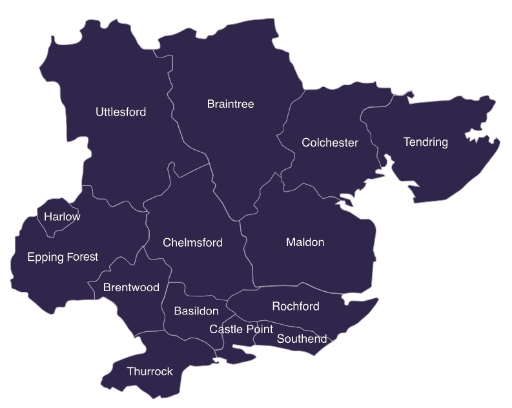Beat The Street
Encouraging sustainable behaviour changes
In the Maldon District, the Beat the Street project is a community-based initiative aimed at addressing health inequalities and promoting healthy lifestyles. Set up by Maldon District Council in collaboration with Intelligent Health, this project encourages physical activity outdoors and active travel among residents.
The initiative uses behavioural science to create a community-wide social norm that supports sustainable behaviour change. By addressing both physical and emotional barriers to being active, Beat the Street empowers adults and children to make small, positive changes in their daily routines. The programme particularly focuses on bringing together communities in rural areas and improving mental wellbeing.



The project was commissioned by Maldon District Council with funding from the UK Shared Prosperity Fund and Essex County Council PHAB (Public Health Accelerator Bids) programme, to help tackle health inequalities across the county, and improve population health by addressing the wider determinants of health through a place based and Asset Based Community Development approach.
Launched on May 15th at Riverside Park in Burnham-on-Crouch, the programme featured themed weeks to highlight local assets, services, and provisions in Maldon District. Events were organised at local libraries to engage new audiences and families, with Maldon and Burnham Park runs promoting double points on nearby Beat Boxes and free bike checks offered at Promenade Park.
A multi-agency steering group, involving key partner organisations from various sectors such as Health, Transport, Education, Culture, and Leisure, was established to highlight local community assets, support residents in continuing their activities, and share good practices for continuous improvement.
Throughout the six-week game phase, the programme collaborated with partners to co-deliver and promote local activities, events, and services, showcasing Maldon District's green and blue spaces, active travel routes, and community groups. This collaboration helped create a sense of community and connect residents.
Key Outcomes
- Inclusivity - Ensuring equal opportunities for participation, especially for those in remote areas, was a key focus. The programme's inclusive approach allowed diverse groups, including those with long-term conditions and from culturally diverse backgrounds, to participate.
- Behaviour Change - Analysis of health survey responses before and after the game phase demonstrated notable behaviour changes. Adult physical activity levels improved, with a 6% decrease in inactivity and an 11% increase in activity. Rural participants saw a 14% reduction in inactivity, and children's physical activity also showed positive trends.
- Sustainable Travel - The programme encouraged sustainable travel behaviours, with 64% of children and 54% of adults walking more. This shift resulted in an estimated 1,666 additional walking trips and 974 fewer car trips per week.
- Community Development - The programme encompassed a stronger sense of community, with increased trust in local organisations, participation in informal groups, and use of public places. These changes highlighted the effectiveness of asset-based community development.








